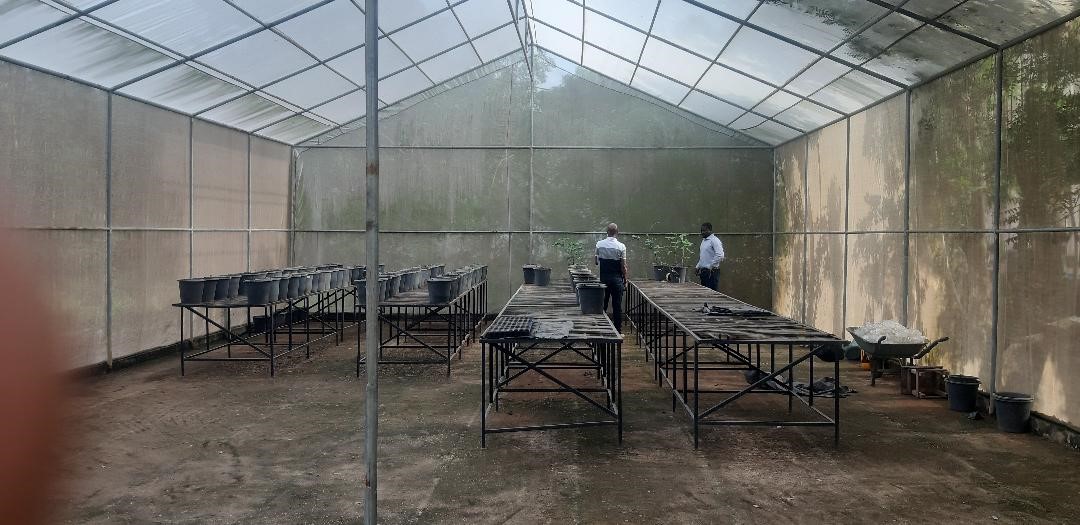Did you know that almost 80 percent of Benin’s 11.2 million people earn a living from agriculture, the Food and Agricultural Organisation of the United Nations (FAO) states? Despite being a subsistence sector, agriculture contributes about 34 percent to this west African nation’s Gross Domestic Product.
It is for the above reasons that the University of Abomey-Calavi (UAC) and the Laboratory of Applied Ecology (LEA) together with the Alliance of Bioversity international & CIAT through the bean programme – Pan Africa Bean Research Alliance penned a partnership to commence bean research and development in Benin to promote agricultural innovation to eradicating poverty, hunger, and malnutrition, mainly in rural areas where most of the poorest live.
Benin is the latest member to join the West and Central Africa Bean Research Network (WECABREN) as its eleventh country.
This milestone was led by Dr. Louis Butare, Bean Breeder and WECABREN coordinator, together with Dr. Stephen Yeboah, Agronomist and Integrated Crop Management focal person in CSIR-Crops Research Institute in Ghana who visited Benin to seal the partnership in March 2021. In attendance to sign the partnership memorandum of understanding from Benin were; Prof. Brice Sinsin, Director of the LEA, Prof. Achille Assogbadjo, Dr. Juliano Houndonougbo, Dr. Gracias H. G. Avakoudjo, Hospice S. Sossou, Dieudonné Kpoviessi, Médard Kafoutchoni, Ferdinand Dougnon, and Symphorien Ahomondji and Dr. Eric E. Agoyi, head of legume breeding Unit, Plant Breeding, Biotechnology and Seed System.
’This partnership is key as it introduces beans to address food and nutrition insecurity as well as boost the economic wellbeing of the smallholder farmers in the country.’’ said Dr. Butare.
This visit explored discussions and agreements with the Legumes Crops Lab at UAC and the delivery of the initial set up bean germplasm materials for the Benin Bean Program.
“This partnership is the beginning of great things in Benin. We are introducing bean research in Benin because of the potential of the crop to help address hunger and food security in the country,” said Dr. Agoyi,
The meeting was an opportunity to exchange projects the Alliance is involved in and sharing of PABRA’s experiences and model with the team in Benin. It created a platform for open discussions.
Benin presents a great opportunity for the expansion of PABRA initiatives. Pulses are already a popular part of the diet as grain and leafy vegetables in the country. Due to declining rainfall and poor soils, this is also an opportunity for an integrated livelihood system with other crops already tested in other countries with similar ecologies, especially with banana and maize. Proper bean research systems similar to PABRA’s, seek to contribute to increased and sustainable agricultural productivity, to establish a sustainable commercialized bean sector in Benin and the region at large.
Not only was PABRA able to make strides into Benin but also has several possible collaborations and facilitation in bean research projects. Musa Africa network, an organization in Benin is keen to learn and understand the PABRA model while seeking the potential for collaboration for livelihood improvement outcomes.


